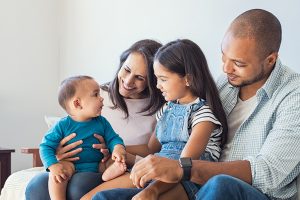
Whether your children are biological or are adopted, at some point in their lives they will have questions about their family history. Researchers have developed the “do you know” scale which asks children approximately 20 questions about their family history to determine how much they know. The more children know about their families history has proven to show children have a stronger sense of control over their lives, much higher self-esteem, and a more successful family dynamic — but what do you do when you cannot tell your adopted children about their family history?
Keep telling the stories!
As a parent of children by birth and adoption, you may find yourself conflicted when children begin asking about their birth story or stories about their family. Depending on the age of adoption or stipulations surrounding the adoption, you may not be able to tell your adopted children much about their birth story or their biological family history like you would your children by birth.
It can be quite frustrating parenting through these questions appropriately, but parents should be open and honest with the children about their adoption story. Tell both your children by birth and adopted children as much as you know. Include all of them in telling stories of your family history, of their grandparents’ lives, of your and your partners’ lives before having children, and even include your adopted children in telling the birth story of your biological children.
There are several options when choosing adoption including an open or closed adoption. In an open adoption, visits with the biological family are often a part of this. It is helpful to include the biological family when your adopted child begins asking about their family history as they will have more answers than you can give. If you are comfortable, including your biological children in learning more about your adoptive child’s family will help them to feel closer and have a better understanding of their siblings’ lives.
Do Not Exclude Any of Your Children
Having inclusive conversations with all of your children will only help to form a closer family bond and make all of your children, biological or adopted, feel like one family. Do not be afraid to tell your biological child’s birth story in front of your adoptive child because you feel bad that you may not be able to give them the same.
If you have not told your children they were adopted yet, they might begin asking questions when they notice that they do not have a similar resemblance to their parents, brothers, or sisters. This is a good time to be open with them about their adoption. Answer their questions with age-appropriate responses and include your children by birth in these stories as well.
Experts recommend that adoptive parents encourage their children to be open with their family history as well as ask questions and share their story — only if they are comfortable. After all, it is their story to tell. By sharing adoption stories you are empowering your child.






